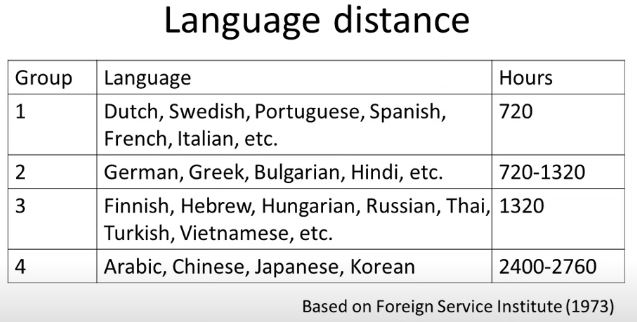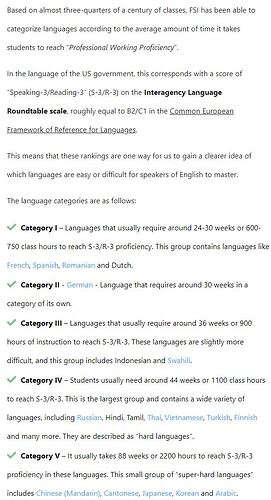I want to study more languages but I want to get to a truly high–but not perfect-- level in one before spreading myself too thin or returning to old ones.
Ok, I’m gonna give you my opinion based on the fact that you are studying with LINGQ as main tool, at home by yourself, and with a simple strategy. You can go faster or change this strategy, it’s just difficult to be “sure” about everything for a lot of different reasons that you know already.
One thing to me is sure. Before going to another language it’s better if you are at ease with the language you are studying now.
I start from these figures posted by @mark.E
- 60K known words.
- 600 hours of listening.
- 3 million words read.
Known words/Words read.
You can target million of words read or number of known words as you prefer. I believe those two numbers are connected in the long run.
Based on the non-scientific whatever experience on hard learners here on LingQ, more or less it seems we have the same numbers for specific languages.
You might take the new Advanced 2 numbers of known words for a specific language that LingQ has and add 10k-15k more. (this is my opinion to be conservative).
For example, in German, 55k-60k known words should provide 95% reading comprehension (based on individual statistics old time users have with this language). As I’m a bit more conservative I go for 65k.
You probably would reach the same target with 4.5/5.5 millions words read. I don’t count on this number because I don’t want to think about all the time LingQ doesn’t count well and adjust it manually. But it’s a choice. At the end of the day, if I need 5 millions or 6 millions it doesn’t make a big difference. I just need to do a lot of work!
You can target one or the other, it seems more or less you are going to reach similar results. For example, if you count words read and I count known words, for the same language, we would reach probably the same level of passive vocabulary knowledge with one number or the other.
Listening hours.
Now, it’s true that @xxdb agrees with those listening hours so I would consider it as a great reference to aim. Although, he has a tendency to listening from the start that would require more listening hours than having already a big passive vocabulary. But he also uses flashcards to boost his initial period so things could match.
I’m sure about one thing though, once you have increased your vocabulary, listening become easier. But different languages might require different strategies. So with some language it seems it would be better to start as soon as you can, with others you can work on more vocabulary first and you’ll be faster if you start afterwards.
Listening is a different beast because you can use TTS here with reading and then switch to many different stuff online. Others are more expert on listening than I am as I always improved this in the target country.
Besides writing and speaking, I think you can have already a good “reference” to understand when you could be comfortable with one language before going to the next one.
In my opinion, when you reach C1/C2 and you are comfortable with the language, you can switch to another one.

